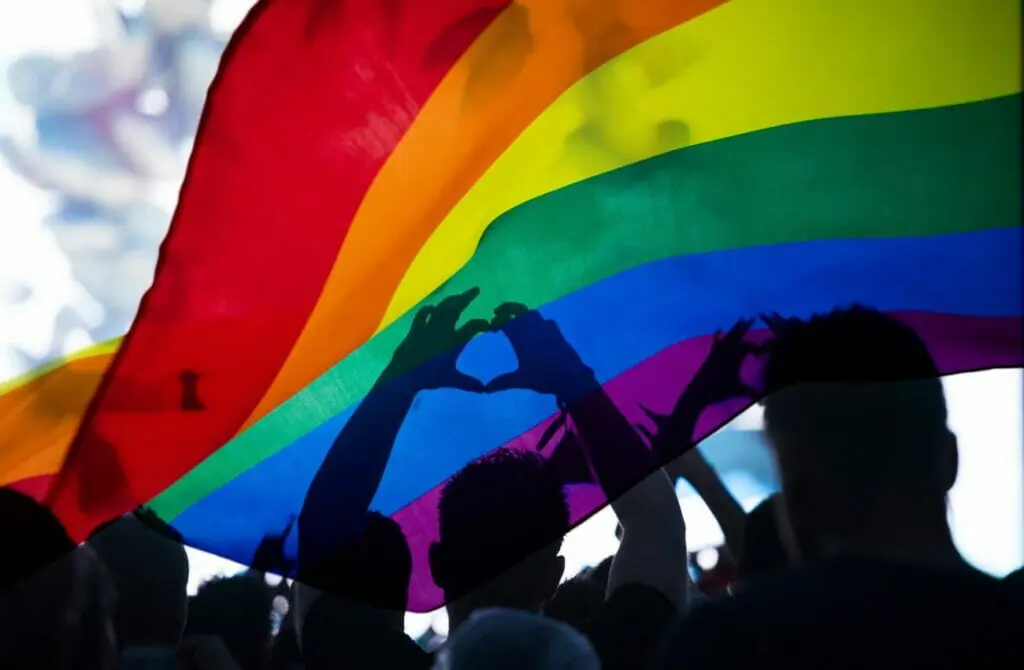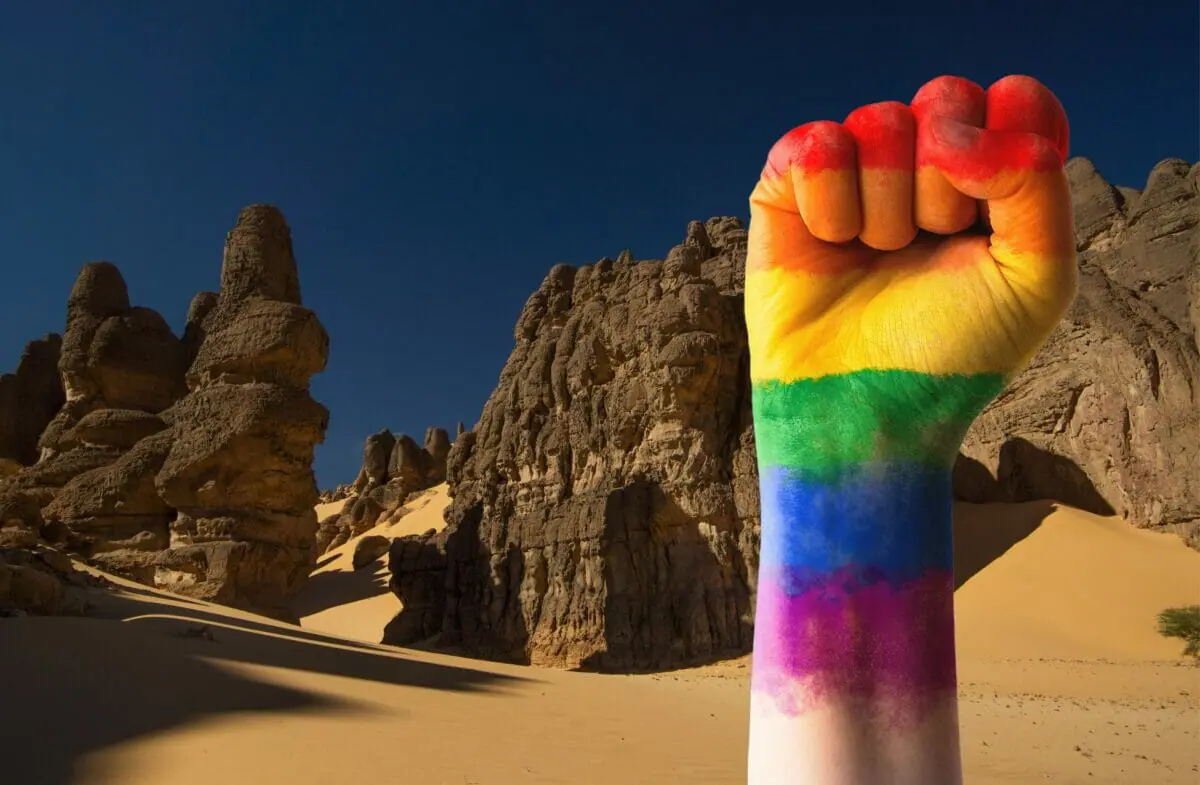In Chad, lesbian, gay, bisexual and transgender (LGBT) individuals encounter legal challenges not faced by their non-LGBT counterparts. Same-sex sexual activity, for both males and females, remains illegal in the country, with punishments consisting of imprisonment and fines. This criminalization occurred in 2017, and since then, homosexuality has remained a precarious issue for the nation’s LGBT community.
While the rights of LGBT Chadians are more affected by these laws, it is important to understand that foreign nationals, including tourists, may also be subject to similar restrictions.
Visitors should remain vigilant and aware of the local laws and cultural attitudes towards LGBT individuals. It is always advisable to seek up-to-date information prior to traveling, as situations can change rapidly, and unforeseen events do occur.
Local advocacy groups working on LGBT rights can provide additional insight and assist both residents and visitors in navigating the complex landscape of Chad’s legal system. While conditions may vary, engaging in continuous dialogue and connecting with these groups can contribute to fostering a supportive environment and increasing awareness regarding LGBT rights in Chad.


History of LGBT Rights In Chad
In Chad, LGBT rights have faced numerous challenges and legal restrictions throughout history. Chad is located in Africa, where several countries enforce laws that criminalize same-sex relations and promote discrimination against LGBT people. The nation’s legal framework has been shaped by homophobic sentiments, resulting in a hostile environment for local LGBT residents as well as tourists.
Before the introduction of the new Penal Code in August 2017, same-sex relations between consenting adults had never been criminalized in Chad. However, the Penal Code 2019 introduced legislation that expressly prohibits ‘sexual relations with a person of the same sex’. This code has criminalized LGBT people, leading to both male and female same-sex relations being considered illegal.
Discrimination and violence against LGBT individuals based on their sexual orientation or gender identity remain significant problems in the country. Local advocacy groups and international human rights organizations have consistently criticized Chad for its ongoing oppression of LGBT rights.
These organizations have also worked to provide protection and support for those affected by these discriminatory laws and the accompanying social prejudice.
Unfortunately, Chad has shown strong opposition to LGBT rights, ranking 95th out of 124 regions in terms of local perceptions of being a “good place” for gay and lesbian people. Furthermore, the country lacks legal provisions regarding the equal age of consent, gender identity, or protection from harmful practices like conversion therapy.
In conclusion, LGBT rights in Chad have a fraught history, with same-sex relations and LGBT individuals being criminalized and subjected to discrimination and violence. Travelers visiting the country should be aware of the current legal situation and remain vigilant, as the circumstances can change rapidly.
It is essential to seek accurate and up-to-date advice before traveling to Chad and be aware of relevant LGBT advocacy groups working to improve the situation for these marginalized communities.
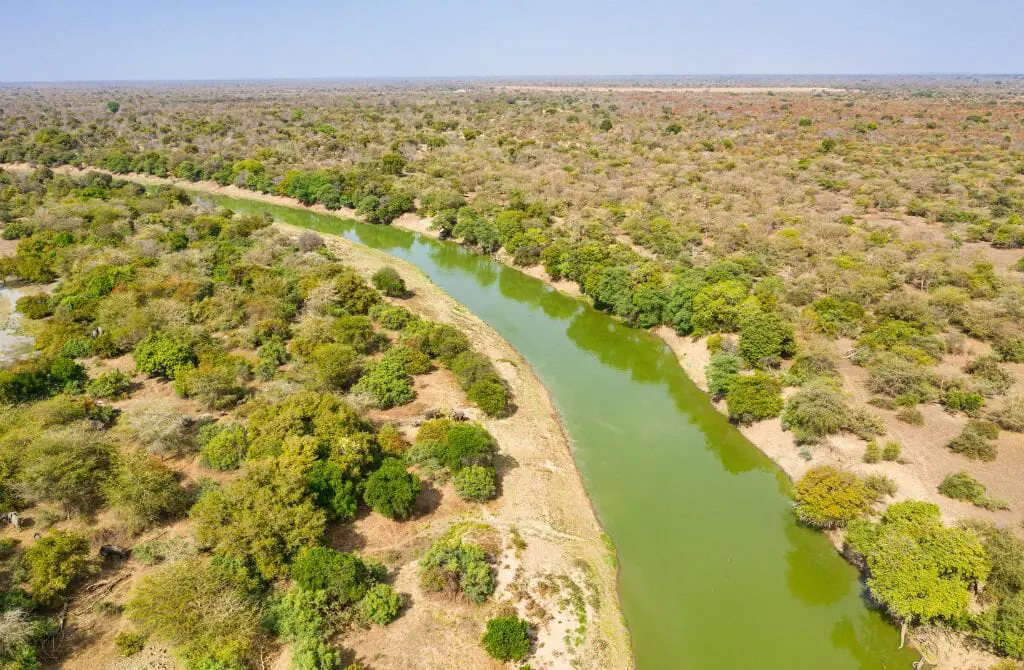
The LGBT Legal Situation In Chad
LGBT rights in Chad face significant challenges as both male and female same-sex sexual activity is illegal in the country. Prior to August 2017, homosexual activity between consenting adults had not been criminalized. However, the national assembly approved legal revamps that included a ban on same-sex relations with punishment ranging from prison sentences to fines. Consequently, Chad became the 37th African state to seek a ban on homosexuality.
Under Chadian law, same-sex relations are punishable with a sentence of up to 20 years imprisonment. This change in legislation reflects the strong opposition towards LGBT rights within the country. President Idriss Deby has maintained a largely conservative stance rooted in Islamic law and local customs.
There is a lack of legal recognition and protection for same-sex couples in Chad, with no provisions for same-sex marriage or civil unions. Legal gender recognition or protection from censorship regarding LGBT issues is also nonexistent, further complicating the lives of individuals who identify as LGBT within the country.
Due to the precarious legal situation and widespread homophobic sentiments, it’s crucial for both local residents and tourists to remain vigilant and exercise caution. Situations can change quickly, and information may become outdated, so it is essential to seek current advice before traveling. Relevant LGBT advocacy groups can provide guidance and potential support during challenging times.
In light of these legal challenges and societal attitudes, it is of utmost importance for individuals to be aware of their rights and the risks they may face as a member of the LGBT community in Chad. Assertions made in this article should not be taken as legal advice but as a general overview of the current climate concerning LGBT rights.
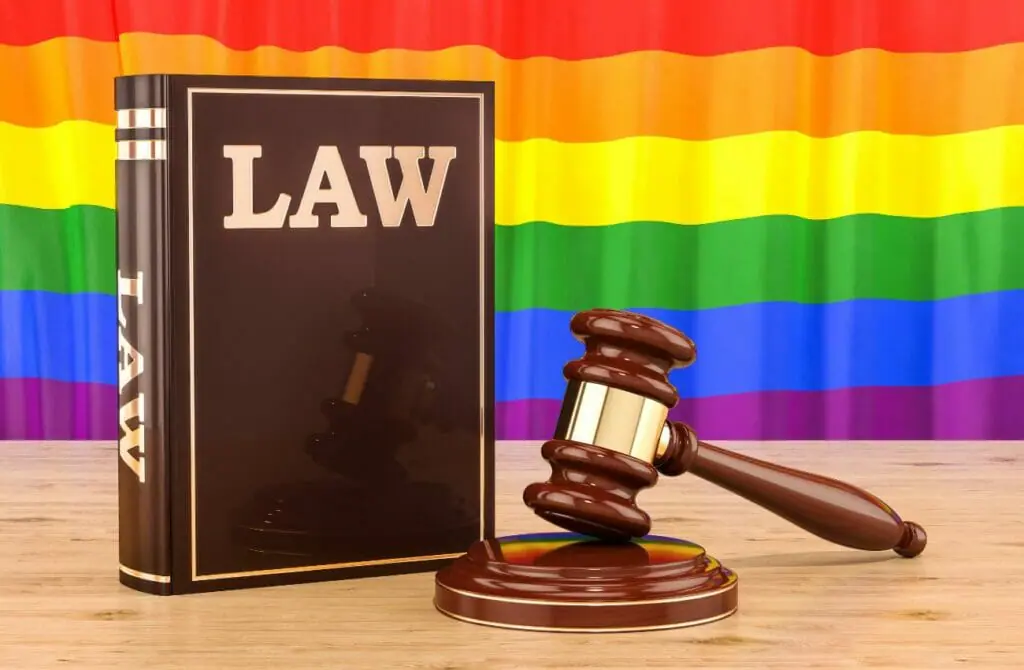

The LGBT Social Situation In Chad
In Chad, LGBT individuals face numerous challenges, with both male and female same-sex sexual activity considered illegal. Legal difficulties aside, societal opposition to LGBT rights is also a significant problem. Research has shown that the local area is not perceived as a safe or accepting place for gay and lesbian people. This has likely contributed to the mistreatment of LGBT individuals, leading to a wide array of human rights violations.
The Chadian government and its agents have been credibly accused of committing numerous human rights abuses, including arbitrary and unlawful killings, forced disappearances, torture, and cruel or inhuman treatment.
Activists, journalists, and human rights groups such as Amnesty International and Human Rights Watch have reported instances of extrajudicial killings and other violations. It’s important for potential visitors to be aware of this tumultuous situation and remain vigilant, as circumstances can change rapidly.
Local authorities may not adequately protect or support LGBT individuals in cases of harassment, discrimination, or violence. Police may not always respond appropriately, and corruption could obstruct proper legal recourse. Victims of abuse, especially LGBT individuals, may struggle to find support in a society that often opposes their rights and freedoms.
Employment discrimination is another issue faced by LGBT people in Chad, as is restricted access to education and political participation. Moreover, freedom of expression, assembly, and association for LGBT persons may be limited, with LGBT advocacy and support groups potentially facing challenges in operating within the country. It’s essential for LGBT people traveling to Chad to remain cautious and seek current advice from trusted sources before making plans.
Solutions for improving LGBT rights in Chad depend on combating the pervasive negative attitudes and increasing awareness on a societal level, alongside government actions to address human rights violations.
Local and international NGOs, as well as community-based organizations, could play a crucial role in this process. Ultimately, progress involves ongoing dialogue, education, and a persistent commitment to the promotion of equality and human rights for all, including LGBT individuals, throughout Chad.
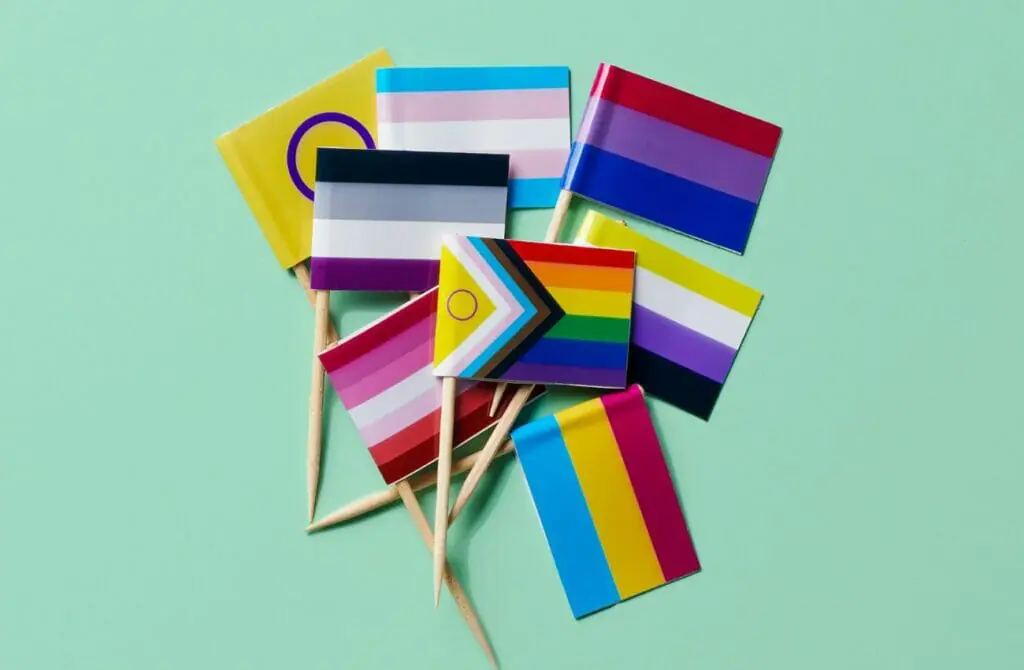
Trans Rights In Chad
Transgender individuals in Chad face a multitude of challenges due in part to the legal environment surrounding sexual orientation and gender identity. Chad’s new penal code, enacted in August 2017, not only criminalizes homosexual activity but also contributes to widespread social discrimination against the LGBTQI+ community.
Transgender people in Chad are at risk of arbitrary arrest by security forces, who have been accused of committing human rights abuses with impunity. Furthermore, there is a lack of legal gender recognition, making it difficult for transgender individuals to change their gender on official documents, which can lead to issues in accessing education, employment, and healthcare.
In Chad’s military and armed forces, the situation for transgender individuals is equally difficult. The National Security Agency has been implicated in human rights abuses and privacy violations, and given the overall environment, transgender people might face further discrimination within the ranks.
Additionally, peaceful assembly and civil liberties are restricted, limiting the ability of the transgender community to advocate for their rights effectively.
While the Ministry of Justice oversees any potential legal changes or reforms related to transgender rights, it is essential to acknowledge the role advocacy groups such as the International Lesbian, Gay, Bisexual, Trans, and Intersex Association (ILGA) play in promoting change. They are vital sources of support, information, and guidance for transgender individuals living in or considering traveling to Chad.
It is essential for transgender people to remain vigilant, as situations can change rapidly, and information may become outdated. Seeking advice from local advocacy groups when planning a trip to Chad and taking necessary precautions (such as ensuring personal documentation is up-to-date and in order) can help protect one’s safety.
Keep in mind that conditions may differ for local people versus tourists, and local transgender individuals may face greater discrimination and challenges than visitors to the country.
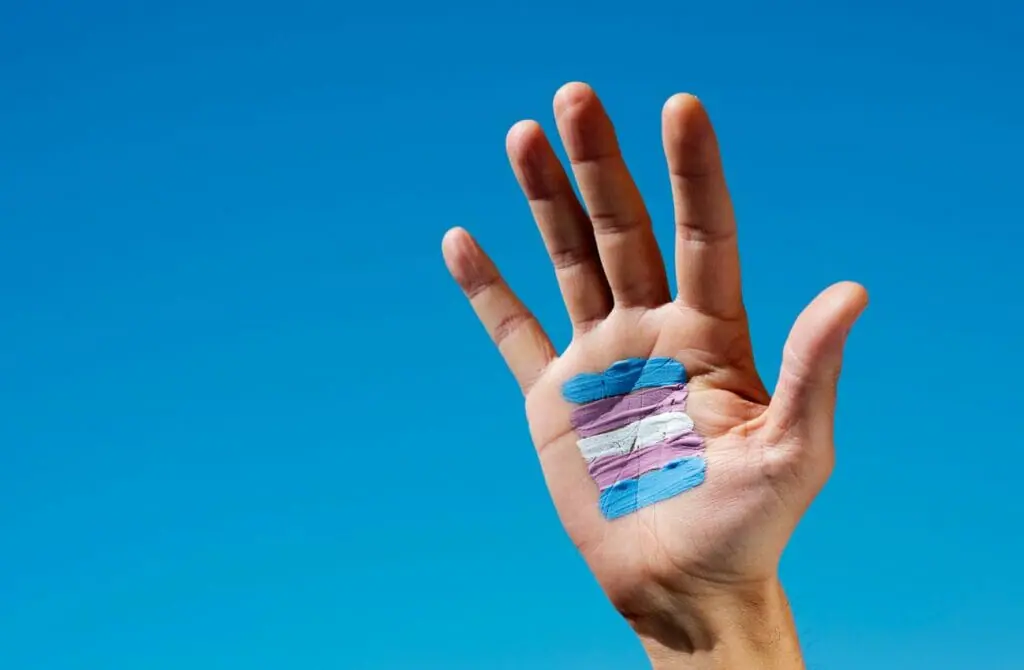

The Future For The Queer Community In Chad
The future of LGBT rights in Chad remains uncertain. The country continues to face legal challenges for its LGBTQ+ community, as both male and female same-sex sexual activity is illegal. Same-sex couples do not have legal recognition, and same-sex marriage remains prohibited. Adoption for same-sex couples is limited to singles, and there are no protections against discrimination in employment or housing.
Under President Idriss Déby’s administration, there has been a crackdown on LGBTQ+ rights, with Chad becoming the 37th African nation to seek a ban on homosexuality. However, it is essential to consider that the political landscape in Chad may change, requiring constant vigilance and up-to-date information.
For travelers, both locals and tourists are affected by the lack of legal protections, and caution should be exercised in Chad regarding LGBTQ+ issues. Situations can change rapidly, and it is always advised to seek current advice before traveling, as bad actors exist in every country.
There are several LGBT advocacy groups and international organizations, such as Human Rights Watch, that monitor and report on the situation in Chad. These groups offer valuable information and updates on legal challenges and developments in the region.
In terms of education and awareness, increased efforts from both national and international organizations could potentially lead to a more favorable climate for LGBTQ+ rights in the future. The key to improved LGBT rights in Chad lies in persistent advocacy, education, and diplomacy, as well as closely monitoring the legal and political landscape.

Protect Yourself While Travelling In Gay Chad
LGBT persons in Chad face unique challenges not experienced by non-LGBT residents, including legal repercussions and social discrimination. Both male and female same-sex sexual activity is illegal in Chad, with the Penal Code 2019 criminalizing acts of ‘sexual relations with a person of the same sex.’ Discrimination based on sexual orientation is illegal in some contexts, but there are no protections for employment or housing discrimination.
Individuals should be vigilant and cautious while in Chad, as human rights groups have reported arbitrary and unlawful actions by security forces and impunity for certain crimes. This underscores the importance of protecting one’s privacy and being aware of the potential for risks.
In addition, freedom of assembly may be limited, and journalists may face censorship or other challenges, which can make obtaining accurate and up-to-date information on the situation for LGBT people in Chad difficult.
To help ensure personal safety, individuals should stay informed about the current situation and local laws, be discreet about their sexual orientation or gender identity, and seek the support and advice of local or international LGBT advocacy groups such as ILGA or Human Rights Watch.
Keep in mind that the situation in Chad can change rapidly, and information may become outdated, so always seek current advice before traveling or making important decisions regarding safety and legal matters.
While the situation for LGBT individuals in Chad may be challenging, especially when compared to neighboring countries like Cameroon, Nigeria, or Libya, it is essential to remain cautious, keep informed, and utilize available resources to protect oneself. Remember that there are always bad actors in every country, and being proactive about personal safety and well-being is vital.
